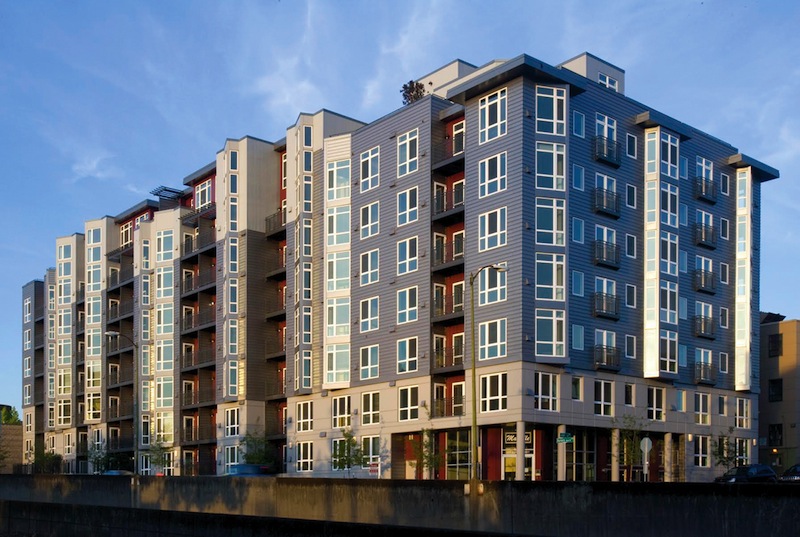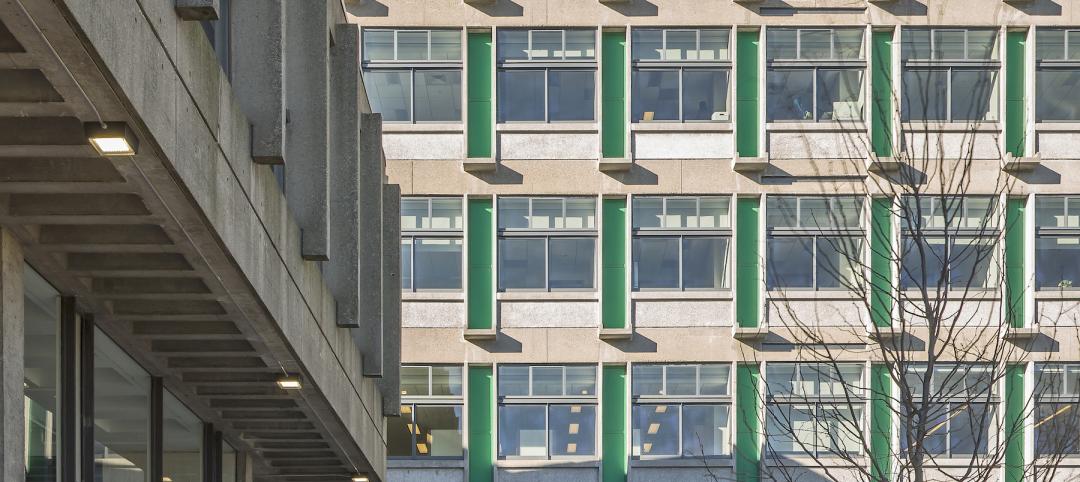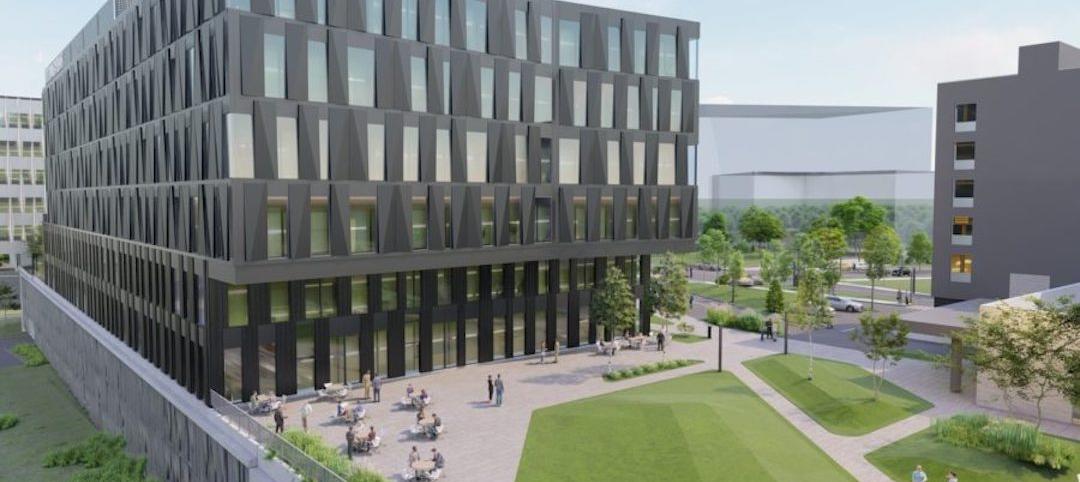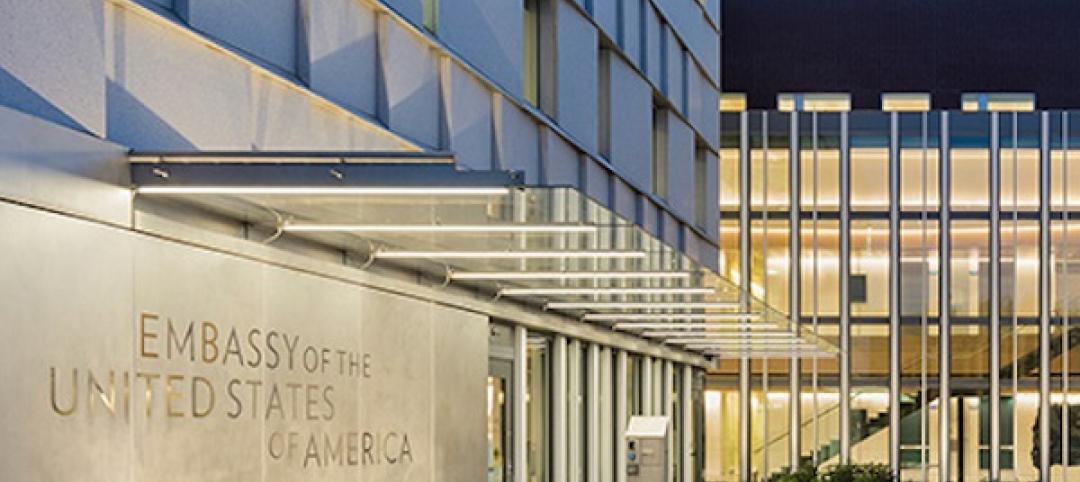Here is a roundup of the most popular AIA/CES Discovery courses on BD+C's continuing education website, BDCUniversity.com. Visit www.BDCuniversity.com to earn 1.0 AIA CES learning units for each successfully completed exam.
1. Applying Modern Energy Codes to Building Envelope Retrofits. When applying current energy codes to existing buildings, a number of issues arise, particularly where the building exterior is concerned. Moreover, envelope assemblies tend to have long life cycles, which can make them difficult and costly to effectively upgrade. www.BDCuniversity.com/applying-modern-energy-codes-building-envelope-retrofits
2. Cool Roofs Can Reduce Peak Energy Demand. This course provides an analysis of the effect of cool or highly reflective roofs in reducing peak demand charges, which may account for a significant portion of monthly electric bills in both new and existing air-conditioned commercial buildings in all North American climate zones. www.BDCuniversity.com/cool-roofs-can-reduce-peak-energy-demand
3. Building Wood Towers: How High Is Up for Timber Structures? The recent push for larger and taller wood structures may seem like an architectural fad—plenty of hype, but only a few dozen completed projects globally. Concrete and steel still rule the world of mid- and high-rise construction. Still, Building Teams around the world are starting to use more large-scale structural wood systems. www.BDCuniversity.com/building-wood-towers-how-high-timber-structures
4. Windows, Doors & Storefronts: Optimizing Safety, Durability, and Client Satisfaction. In nonresidential construction, Building Teams are finding that product and system selection is becoming increasingly complicated, due to increased demands from building occupants, according to fenestration experts. www.BDCuniversity.com/windows-doors-storefronts-optimizing-safety-durability-and-client-satisfaction
5. Guidelines for Designing Low-slope Membrane Roof Systems. Critical aspects of roof system designs are often left unaddressed, resulting in incomplete contract documents. This course identifies the information roofing contractors generally need from roof system designers to provide complete and building code-compliant low-slope roof systems. www.BDCuniversity.com/guidelines-designing-low-slope-membrane-roof-systems
6. Wet-applied Coatings and Finishes for Commercial and Institutional Projects. The rapid pace of development of improved liquid-applied materials and finishes has given Building Teams new options. These sprayable, paintable, or “gunnable” products can add performance and sustainability benefits and reach new levels of resiliency and durability. www.BDCuniversity.com/wet-applied-coatings-and-finishes-commercial-and-institutional-projects
7. Pumped-up Recreation Centers. Sports and recreation used to be confined to dedicated, often isolated, settings. That’s no longer the case. Adopting facility layouts from Asian and European models, today’s sports and recreational buildings are becoming social hubs that accommodate a variety of community needs. www.BDCuniversity.com/pumped-recreation-centers
8. Building Envelope Commissioning: 8 Strategies for Success. Building enclosure commissioning—BECx—is intended to assure building quality by establishing an explicit process to verify that a building enclosure is designed and constructed to meet the owner’s objectives. The concept of building enclosure commissioning has been around for several decades, but it has not been well defined, understood, or utilized. www.BDCuniversity.com/building-envelope-commissioning-8-strategies-success
9. Enhancing Interior Comfort While Improving Overall Building Efficacy. Providing more comfortable conditions to building occupants has become a top priority in today’s interior designs. Optimized daylighting, shading strategies, well-coordinated lighting controls, and underfloor air distribution systems can contribute to improved occupant comfort and energy savings. www.BDCuniversity.com/enhancing-interior-comfort-while-improving-overall-building-efficacy
Visit www.BDCuniversity.com to earn 1.0 AIA CES learning units for each successfully completed exam.
Related Stories
Sponsored | Steel Buildings | Jan 25, 2022
Structural Game Changer: Winning solution for curved-wall gymnasium design
Sponsored | Steel Buildings | Jan 25, 2022
Multifamily + Hospitality: Benefits of building in long-span composite floor systems
Long-span composite floor systems provide unique advantages in the construction of multi-family and hospitality facilities. This introductory course explains what composite deck is, how it works, what typical composite deck profiles look like and provides guidelines for using composite floor systems. This is a nano unit course.
Sponsored | Reconstruction & Renovation | Jan 25, 2022
Concrete buildings: Effective solutions for restorations and major repairs
Architectural concrete as we know it today was invented in the 19th century. It reached new heights in the U.S. after World War II when mid-century modernism was in vogue, following in the footsteps of a European aesthetic that expressed structure and permanent surfaces through this exposed material. Concrete was treated as a monolithic miracle, waterproof and structurally and visually versatile.
Urban Planning | Jan 25, 2022
Retooling innovation districts for medium-sized cities
This type of development isn’t just about innovation or lab space; and it’s not just universities or research institutions that are driving this change.
Sponsored | Resiliency | Jan 24, 2022
Norshield Products Fortify Critical NYC Infrastructure
New York City has two very large buildings dedicated to answering the 911 calls of its five boroughs. With more than 11 million emergency calls annually, it makes perfect sense. The second of these buildings, the Public Safety Answering Center II (PSAC II) is located on a nine-acre parcel of land in the Bronx. It’s an imposing 450,000 square-foot structure—a 240-foot-wide by 240-foot-tall cube. The gleaming aluminum cube risesthe equivalent of 24 stories from behind a grassy berm, projecting the unlikely impression that it might actually be floating. Like most visually striking structures, the building has drawn as much scorn as it has admiration.
Sponsored | Resiliency | Jan 24, 2022
Blast Hazard Mitigation: Building Openings for Greater Safety and Security
Coronavirus | Jan 20, 2022
Advances and challenges in improving indoor air quality in commercial buildings
Michael Dreidger, CEO of IAQ tech startup Airsset speaks with BD+C's John Caulfield about how building owners and property managers can improve their buildings' air quality.
Architects | Jan 17, 2022
OSPORTS adds Robert Hayes to lead operational and business development efforts
Hayes will guide the OSPORTS organization in its mission to offer a unique perspective to designing world-class facilities.
Architects | Jan 13, 2022
Hollywood is now the Stream Factory
Insatiable demand for original content, and its availability on a growing number of streaming platforms, have created shortages — and opportunities — for new sound stages.
Architects | Jan 13, 2022
Robert Eisenstat and Paul Mankins receive 2022 AIA Award for Excellence in Public Architecture
The award recognizes architects, public officials, or other individuals who design distinguished public facilities and advocate for design excellence.

















